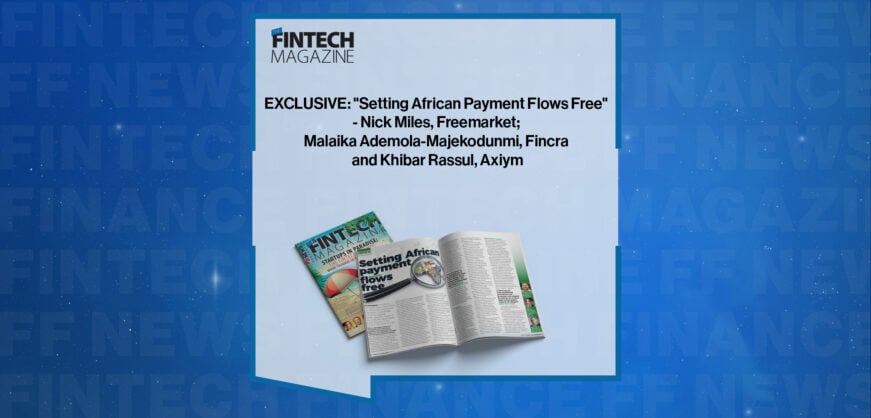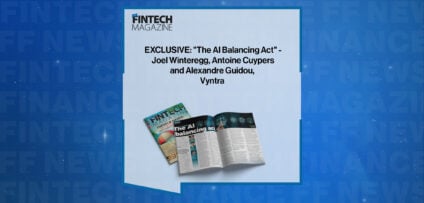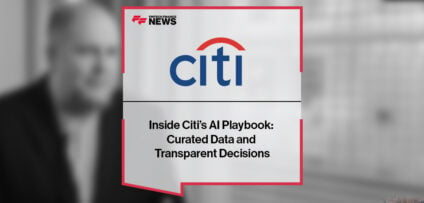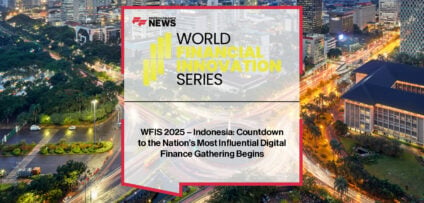Breaking News

Digital sandbox access announced at packed Newcastle FinTech North conference
The last couple of years have seen a lot of focus on regional Fintech growth across the UK. FinTech North have built a network that champions and celebrates fintech in the North of England. We’re talking Leeds, Manchester and of course, Newcastle, which is where I was last week (Thursday 20th July) for their annual conference.
Speakers from Mastercard, the FCA, CFIT, Atom Bank and Kani payments were in attendance, and, despite travel disruption caused by train strikes, a packed room full of people turned out to listen.
Yes, those train strikes were unfortunately timed for my travel up to the Toon, but it didn’t stop FinTech North having one of their best percentage turnouts ever.
Organiser Julian Wells said it “shows just how much passion and enthusiasm there is in this region to get behind fintech, and create jobs and opportunities. It’s a really exciting day for the Northeast.”
Indeed, with the local area represented by the likes of Atom Bank and Kani there is clear evidence that successful fintech companies can be grown in the region. Not least because Newcastle is also home to the country’s largest tech company in Sage.
Add to that, speakers from Mastercard and national regulatory and industry bodies like the FCA and the newly formed CFIT, and we were in for an impressive line up at the event, which took place at the distinctive Neville Hall.
Going over some of the talks below, it’s clear there’s lots of crossover between speakers who touched on similar topics or chimed with sentiments around innovation, inclusion and regulation.

FCA and CFIT supporting innovation
After introductions from the team at FinTech North we had our first keynote from Ezechi Britton MBE, the CEO of the Centre for Finance, Innovation and Technology (CFIT). He was the event’s only virtual speaker, who would have been in Newcastle, had it not been for scuppered travel arrangements.
CFIT is the private sector-led body established after the Kalifa Review, aimed at driving forward innovation in the financial sector. It was an optimistic start to the day and introduced the importance of regional fintech hubs and organisations like Fintech North for gathering and sustaining the ecosystem in these areas.
Britton even joked that with such a focus on the regions since 2021, some in London may feel forgotten about, although I’m sure there’s no real danger of that. A major point in his talk was that the goal of most fintech founders isn’t just to make money, despite what conversations about funding may have you believe. Fintech in its purest form is about solving real world problems and making life easier for everyday people. CFIT’s recently announced Open Finance Coalition is designed to do just that through the power of leveraging financial data.
This talk was suitably followed by a major announcement from the FCA. In news scorching hot off the press at the time, speaker Matt Lowe announced that their digital sandbox, a pilot of which launched during Covid-19, would be made permanently available to innovative businesses from the 1st August 2023.
The project, which was invite-only, has proved a success by providing access to high quality data sets, various APIs, and an environment in which to test and develop digital solutions. It also has an ‘observation deck’ allowing interested parties such as regulators, incumbents and more to observe testing at a technical level. They’re now opening applications up to the wider community to continue innovation after seeing the benefit to organisations during the pilot stage.
One thing I wanted to know was whether this sandbox could be used as a way of gaining some kind of certification for fintechs and whether it would give startups invaluable resources that would set them apart from competitors.
As it happens, an FCA spokesperson said “The FCA does not endorse any solution or issue any certification to participants” but that “participation in the digital sandbox and solutions developed will be publicly viewable from the digital sandbox platform” suggesting the possibility for prospective investors to look in on a company’s progress.
Interestingly, one of the other speakers, Andy Sturrock, CTO at Atom Bank asked in his fireside chat, whether there needed to be a kite mark for companies to show they are certified to act within regulations. Although the FCA’s sandbox can’t exactly provide that it certainly suggests a broader desire for unity on this topic.
Atom Bank had two representatives at the conference, Andy and Chief People Officer Anne-Marie Lister, who both expanded on the success of the country’s first app-based bank, who announced their first ever annual operating profit this month.
Neo-bank, mobile bank, whatever you want to call it, there’s no question that Atom is in that crowd, and although they may not be the most talked about, they were the first to get a banking licence.
They’ve clearly put huge value on an efficient business model and a focused product offering, as well as building great teams and prioritising exceptional customer service, which appears to have helped them get to this important and sought after milestone. They now have over 500 staff, and it’s fair to say culture and transparency really is key.

Financial Inclusion on the agenda at FinTech North
The other keynote speaker was from Mastercard. Grant Johnstone, the global head of engagement at Mastercard spoke on Fintech and the public sector. He stressed the fact that Mastercard are not a product-based organisation but rather a technology and marketplace provider. The huge amount of data they have access to from merchants and vendors means Johnstone was able to point out that 90% of transactions are now done by tapping a card or phone on a terminal.
Of course, the process of tapping a card is now a learned behaviour that has made paying with a phone much easier, which was always the goal. All these innovations are in service of financial inclusion and he also explained what Mastercard are doing to further this. Examples included education programs in the Nordics for the less tech savvy, helping former prisoners reintegrate and helping farmers in India get to market.
I was able to speak to him afterwards and had an interesting conversation about what the future of payments involved with tokenization being a key development in the years to come.
The conference also had speakers from local company Kani Payments who announced they are launching in the US in the next few months and are developing relationships with larger organisations such as Mastercard to reduce timeframes for data settlements. More and more fintechs are using their data to bring products to market.
Other items on the agenda included a panel from local investment and business bodies, such as Invest North East, Invest Newcastle and Newcastle Building Society as well as law and consultancy firms, who are all helping to further fintech growth in the region.
Despite certain challenges and smaller amounts of funding received in the North East, the area has proven to be resilient and has impressive growth potential, particularly in light of plans for devolution in the area and a combined local authority.
A showcase of local fintechs also presented some exciting ideas and an active tech scene. The event maintained a buzz throughout, particularly during the refreshment and networking breaks where conversations were crackling throughout the impressive venue.
As for the venue, the Common Room at Neville Hall, which is conveniently located right next to Newcastle Train Station (at least it would have been had there not been train strikes), is an austere building and the main hall itself is grand.
It’s perhaps not what you’d expect from a conference about the cutting edge of financial technology. Then again, the surroundings made for a compelling contrast to the innovations and developments being discussed.
In fact, with so much of fintech being about disrupting legacy institutions, whilst also recognising that most progress is made by partnering with them, what better metaphor than to have the conference take place here?
One thing is for sure, the established order is changing. And Newcastle and the Northeast have a key role to play in changing it.
People In This Post
- GNOMI Launches the Only ‘Finance Mode’ with Real-Time Global Earnings Calls and Generative Market Intelligence Read more
- Cross River Launches Stablecoin Payments With Infrastructure to Power the Future of Onchain Finance Read more
- Tidalwave Raises $22M Series A, on Track to Reach 4% of U.S. Mortgage Market Read more
- Emerging Market Opportunities: The Next Billion Customers | Freemarket, Fincra and Axiym | FF Virtual Arena #358 Read more
- Inside Citi’s AI Playbook: Curated Data and Transparent Decisions Read more



























